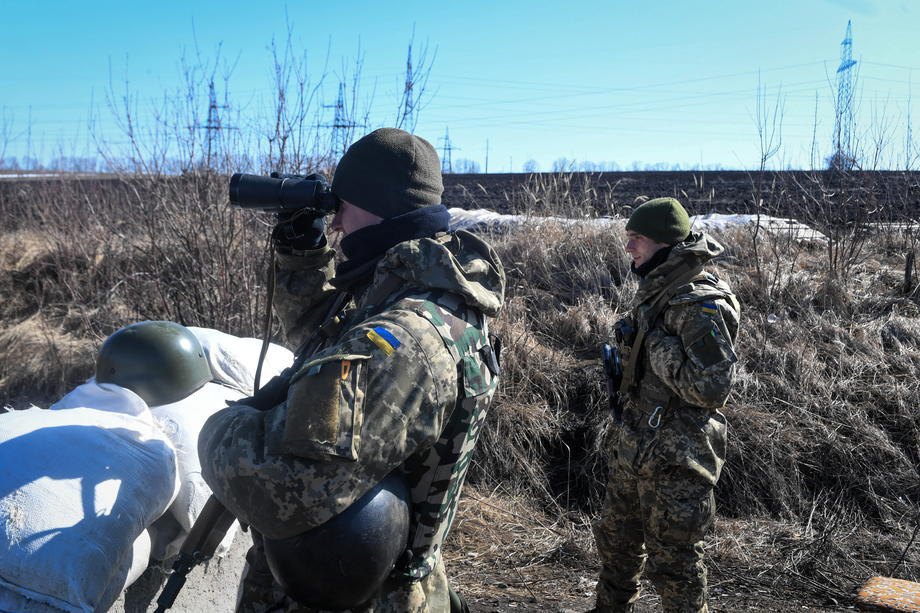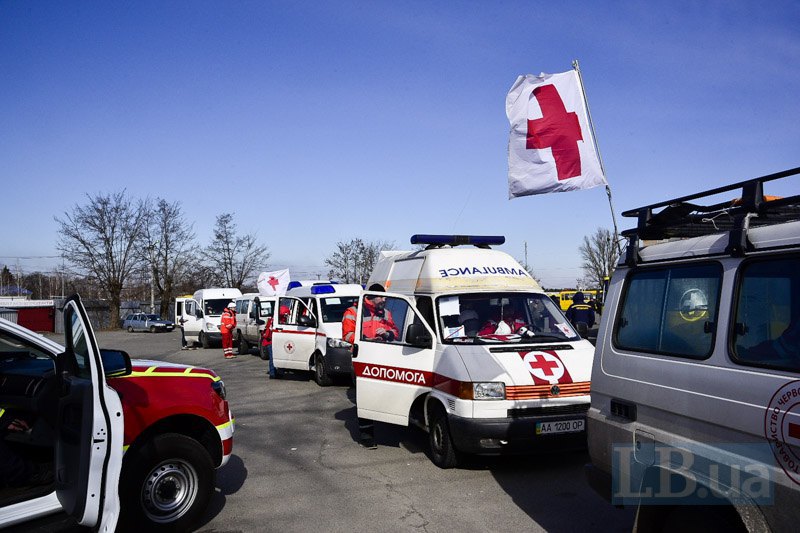
First, we need to clarify the definitions – the text will focus exclusively on the International Committee of the Red Cross and not on the Ukrainian Red Cross Society.
Although the Red Cross and Red Crescent Movement includes the International Committee of the Red Cross, 192 National Red Cross and Red Crescent Societies, and the International Federation of Red Cross and Red Crescent Societies, the activities of these structures are very different.
The International Committee of the Red Cross has an international mandate. It can be a neutral mediator between the parties to the armed conflict and provide humanitarian assistance – in particular, in organizing humanitarian corridors (in agreement with the parties to the conflict). At least, this is stated as the main goals of the organization.
The Red Cross Society has an exclusively national mandate. Representatives of this structure can be seen in places of disasters. The society accompanies evacuations organized and coordinated by local authorities, but the employees themselves cannot initiate or coordinate any humanitarian corridors. The Ukrainian Red Cross Society delivers medicines to hospitals, provides pre-medical and psychological assistance. This structure emphasizes that it should not be associated with Peter Maurer's statements and visits. And such an attempt to distance yourself is quite understandable and reasonable: Ukraine was outraged by both, the tone of the meeting between Maurer and Lavrov, and the statements about the intention to open another office in Rostov-on-Don – "to improve the work of the ICRC in the Donbas and other parts of Ukraine under control of the russian armed forces" (the choice of words is striking – he could have at least used the definition of "territories not under control by the Ukrainian government", but what's done is done).
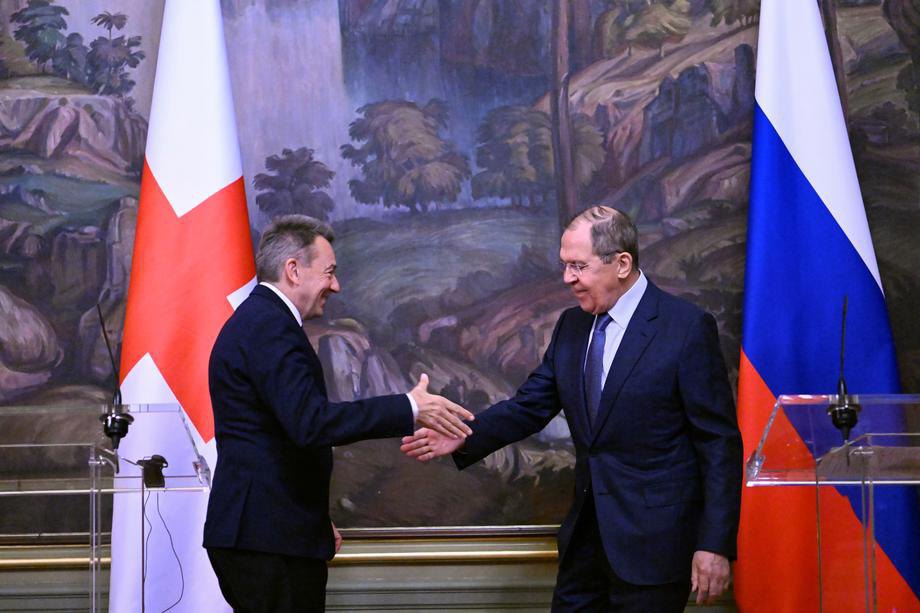
Not long before that, it became known that the russian troops were the cause of humanitarian corridors between Mariupol and its environs and Zaporizhzhia, with an intermediate point in Berdyansk not workings according to the agreed-upon scheme: the occupiers forced columns of people to turn around and first directed them deep into the occupied territories and then into the territory of the russian federation.
According to media reports obtained directly from Ukrainians who had been deported, there are filtration camps in Novoazovsk where deportees are photographed from different angles, fingerprinted, asked endless questions on a standard questionnaire – are any relatives still left in Ukraine, how do they feel about Ukraine's actions, and so on. People's phones were also being taken away. Thus, these can not be called humanitarian corridors, they were deportations, people were moved by force, kept in the dark about where they were actually being taken and what would happen to them next. Therefore, everything that happened could not be perceived differently in Ukraine: campaigns to force them to abandon material support for the ICRC and their operations in Ukraine and redirect their funds to any other organizations or funds that help Ukraine were instantly initiated. Ukrainians and concerned citizens of other countries stated very clearly: even mentioning the possible opening of a representative office in Rostov-on-Don under such circumstances look like support for the deportations of Ukrainians by the once-respected organization.
The International Committee of the Red Cross completely failed the crisis communication: at first, representatives of the structure tried to remain silent, then issued messages about the fundamental principles of the organization's work, and in some private attempts to reach out to employees, blogs that boil down to the idea "such help is better than no help at all”, “Did you want the Red Cross to enter Rostov-on-Don under the Ukrainian flag?" etc were published.
26 March the International Committee of the Red Cross stated that the organization had never facilitated deportations and employees had participated in evacuations on the territory of Ukraine twice – on 13 March and 18 March in Sumy. But this statement does not explain Maurer's words about the office in Rostov-on-Don to "help Ukrainians".
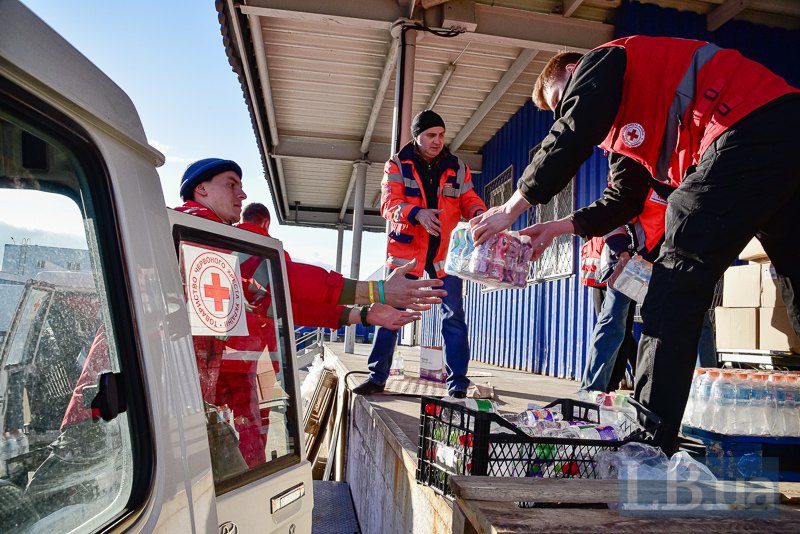
However, the ICRC decided not to stop there, and Peter Maurer gave an interview which is often mistakenly positioned as liberal to the russian newspaper Kommersant on 28 March. This text only deepened the communication pit into which the International Committee of the Red Cross has plunged itself. Russian journalists asked questions such as whether the diplomat believes that "in some cases, the Ukrainian military forbade civilians to leave the city and did not provide information about the humanitarian corridors opened by the russians." But Maurer did not deny these statements, he only said that "he knows what statements are exchanged between the parties ," and added that "if there is no trust, it must be built." Peter Maurer in this interview made several other statements that cannot be interpreted in favor of the ICRC and how they deal with the function assigned to them: for example, Maurer's statements that the ICRC is a guarantor of the Geneva Convention and ensures the implementation of international humanitarian law.
But we have to talk about a violation of the IV Geneva Convention relative to the protection of civilian persons in time of war, namely Article 49, which prohibits the abduction and deportation of protected persons from the occupied territory to the territory of the occupying state or to the territory of any other state, regardless of whether they are occupied or not.
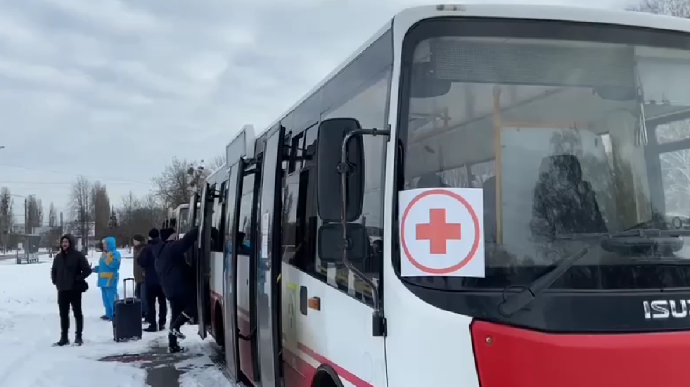
The occupying power may undertake total or partial evacuation of a given area if the security of the population or imperative military reasons so demand. Such evacuations may not involve the displacement of protected persons outside the bounds of the occupied territory except when for material reasons it is impossible to avoid such displacement. Persons thus evacuated shall be transferred back to their homes as soon as hostilities in the area in question have ceased. Russians refuse this to the deported Ukrainians – there are reports that people are provided with papers prohibiting them from returning to their homes (the mechanics of such a ban are not fully understood).
Therefore, calling that the ICRC the guarantor of humanitarian law is not only impossible - it sounds like a mockery. The author of this text would very much like the evacuation from Mariupol announced on 31.03.2022 would not to be disrupted and the Red Cross would fulfill its obligations as a neutral mediator providing humanitarian aid, and not pseudo-neutral, agreeing with all the actions of the russian federation.
The funds currently sent to the ICRC from all over the world to help Ukraine should be sent to organizations that assist the Ukrainian army. After all, in reality, no humanitarian aid can be delivered under constant shelling and the constant threat of missile strikes. And only the Ukrainian armed forces can help russia to adhere to the ceasefire.
